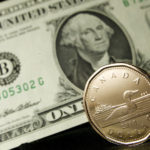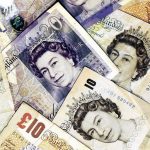Gold continued to advance on Thursday and hit a new session high in early European trading as policy makers decided to keep the pace of monthly bond purchases intact after FOMCs two-day meeting. A broadly weak dollar allowed the metal to rise back to a one-and-a-half week high. Silver, platinum and palladium surged as well.
On the Comex division of the New York Mercantile Exchange, gold futures for delivery in December traded at $1 371.50 per ounce at 7:40 GMT, up 0.2% on the day. Prices rose to a session high of $1 375.10 per ounce minutes earlier, the strongest level since September 10, while days low was at $1 358.70. The precious metal surged 4.7% on Wednesday, erasing prior weekly losses and extending its advance to 3.4%.
Gold received a strong boost yesterday and continued to advance after the U.S. dollar fell to a seven-month low as the Federal Reserve decided to keep its monetary easing program unchanged, confounding broad market expectations for a $10 billion reduction. According to a statement after the conclusion of FOMC’s two-day meeting, policy makers “decided to await more evidence that progress will be sustained before adjusting the pace of its purchases.” Chairman Ben Bernanke and his colleagues feared that the rising borrowing costs were showing signs of slowing the four-year expansion of the U.S. economy. Data showed on Tuesday that consumer inflation was struggling to pick up and remained well below Fed’s target at 2%. Bernanke once again said that there is “no fixed calendar schedule”.
The dollar index, which measures the greenback’s performance against six major counterparts, traded at 80.30 at 7:23 GMT, up 0.09% on the day. Prices held in range between day’s high and low of 80.33 and 80.17 respectively. The December contract plunged 1.3% on Wednesday and extended its weekly decline to 1.7%. Dollar-priced commodities tend to trade inversely to the greenback. Weakening of the dollar makes raw materials priced in it cheaper for foreign currency holders and boosts the attractiveness of riskier assets.
Marc Faber, publisher of the Gloom, Boom & Doom report, said for Bloomberg: “My view was that they would taper but I’m not surprised that they don’t do it for the simple reason that I think we are in QE unlimited. The markets are overbought. I’m a little bit apprehensive. I’d like to wait a few days to see how the markets react after the initial reaction which was to pile into everything.”
Assets in the SPDR Gold Trust, the biggest bullion-backed ETP, remained unchanged for a third day at 911.12 tons, data on the web site showed.
Broad market expectations were pointing at a reduction between $5 and $10 billion. According to a Bloomberg survey of analysts before FOMCs after-meeting statement, 33 out of 64 participants wagered that the central bank will reduce its bond purchases by $5 billions or less, while 31 predicted a deceleration of $10 billion or more. Another Bloomberg survey conducted on September 6 showed that the central bank was liekly reduce its monthly purchases of Treasuries to $35 billion from $45 billion and keep mortgage-bond buying unchanged at $40 billion. Credit Suisse analysts expected a $20 billion reduction of the program.
Elsewhere on the precious metals market, silver rose to $23.085 per ounce at 7:35 GMT, up 7.02% from yesterdays settlement at $21.564 before the announcement. Prices held in range between days high of $23.230, near yesterdays one-week high, and low at $22.855 per ounce. Platinum October futures rose by 3.52% to $1 475.35 per ounce at 7:37 GMT and ranged between a one-week high of $1 479.10 and low of $1 461.45 per ounce. Palladium for delivery in December surged 2.66% to $721.80 per ounce and held in range between days high of $725.50 an ounce, the strongest level since September 2, while days low stood at $718.20.





